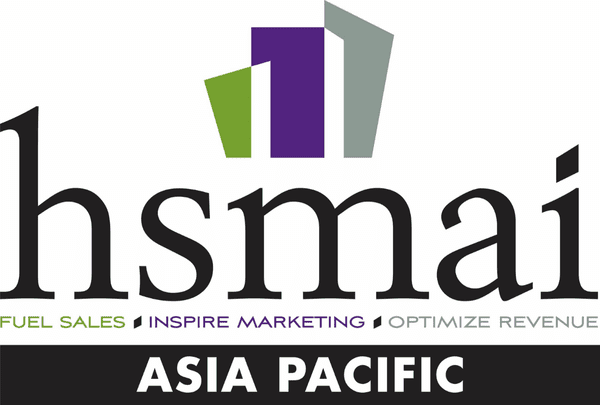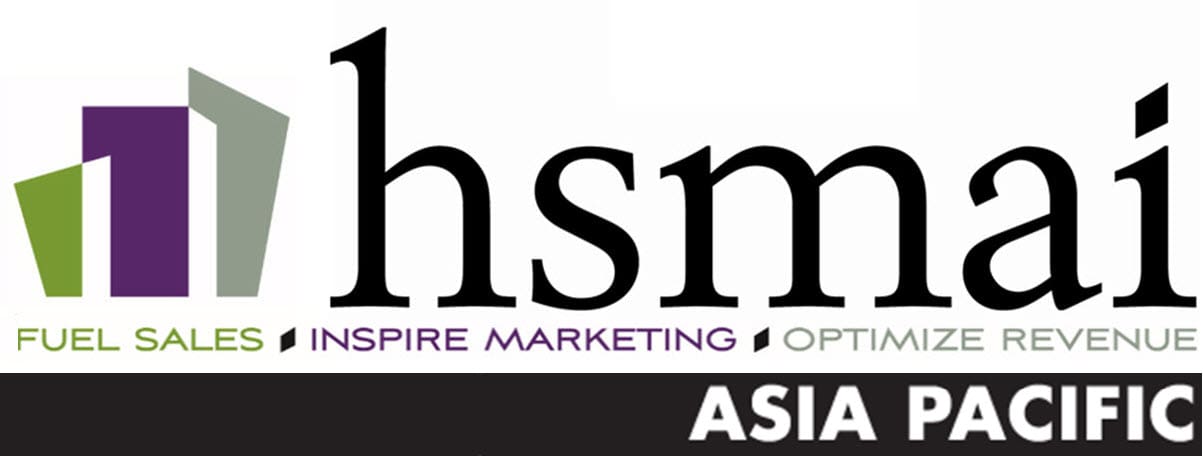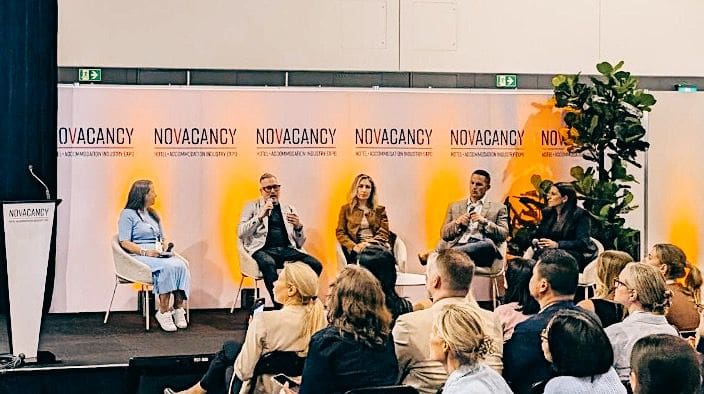
BEYOND GOOGLE: HOW HOTELS CAN WIN IN THE AGE OF AI SEARCH
At No Vacancy Sydney, HSMAI hosted a packed session that tackled one of hospitality’s most urgent questions: how can hotels stay visible and competitive as discovery shifts from Google to AI-powered search?
With insights from leaders across agencies, global hotel groups, and hospitality brands, the session offered hoteliers both a reality check and a roadmap.
FROM SEARCH 1.0 TO SEARCH 2.0
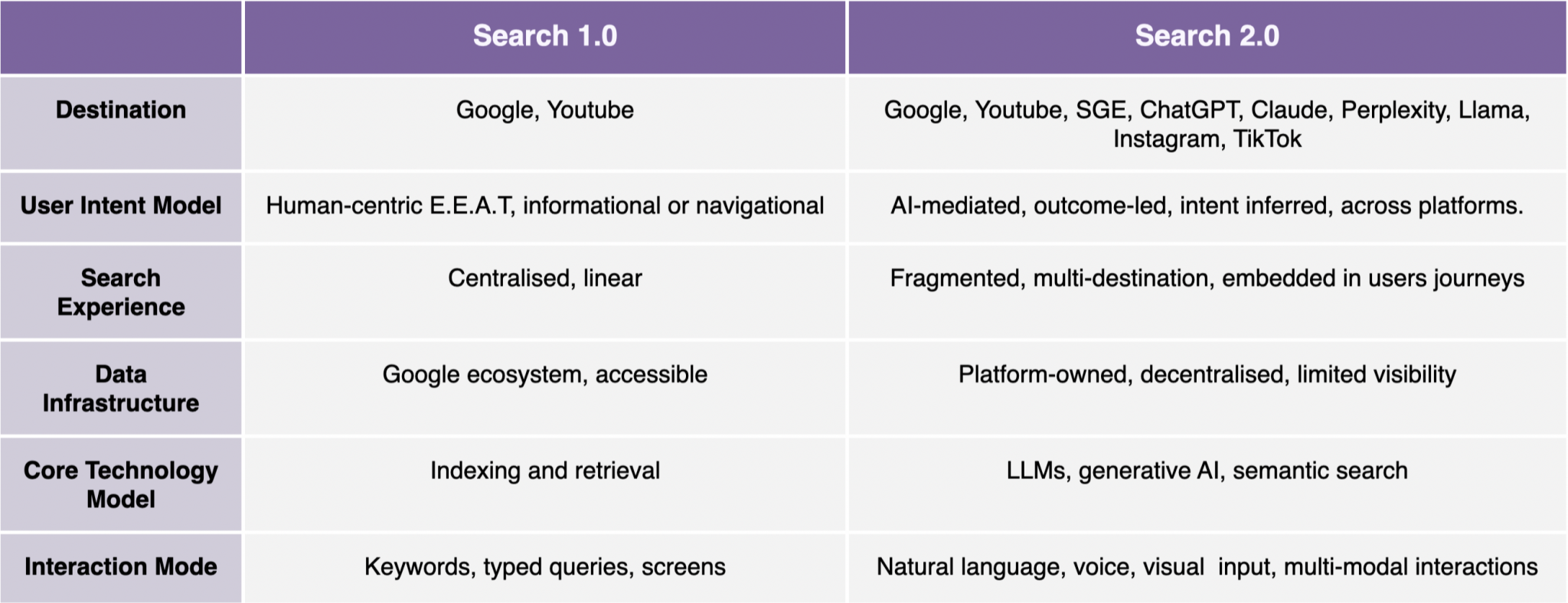
Paul Hewitt, CEO of In Marketing We Trust, opened with a reminder that while Google still dominates discovery, AI is rising fast. Globally, Google had 83.8B visits in August compared to ChatGPT’s 5.8B—but 33% of travellers now say AI is their primary tool for finding hotels.
AI search isn’t just new technology; it represents a structural shift:
- From keywords to conversational queries
- From centralized Google searches to fragmented discovery across social, reviews, video, and apps
- From generic results to personalized recommendations, often pulling in sub-pages like restaurant menus or spa amenities rather than a homepage.
For hotels, that means one-size-fits-all SEO isn’t enough. Success lies in tailoring content for multiple channels where AI scrapes and validates information.
Perhaps the most significant change is where AI gets its information. It’s not just crawling your website. The panel revealed that LLMs pull data from a wide array of sources, with Reddit, journalistic sites, and user-generated content being surprisingly influential.
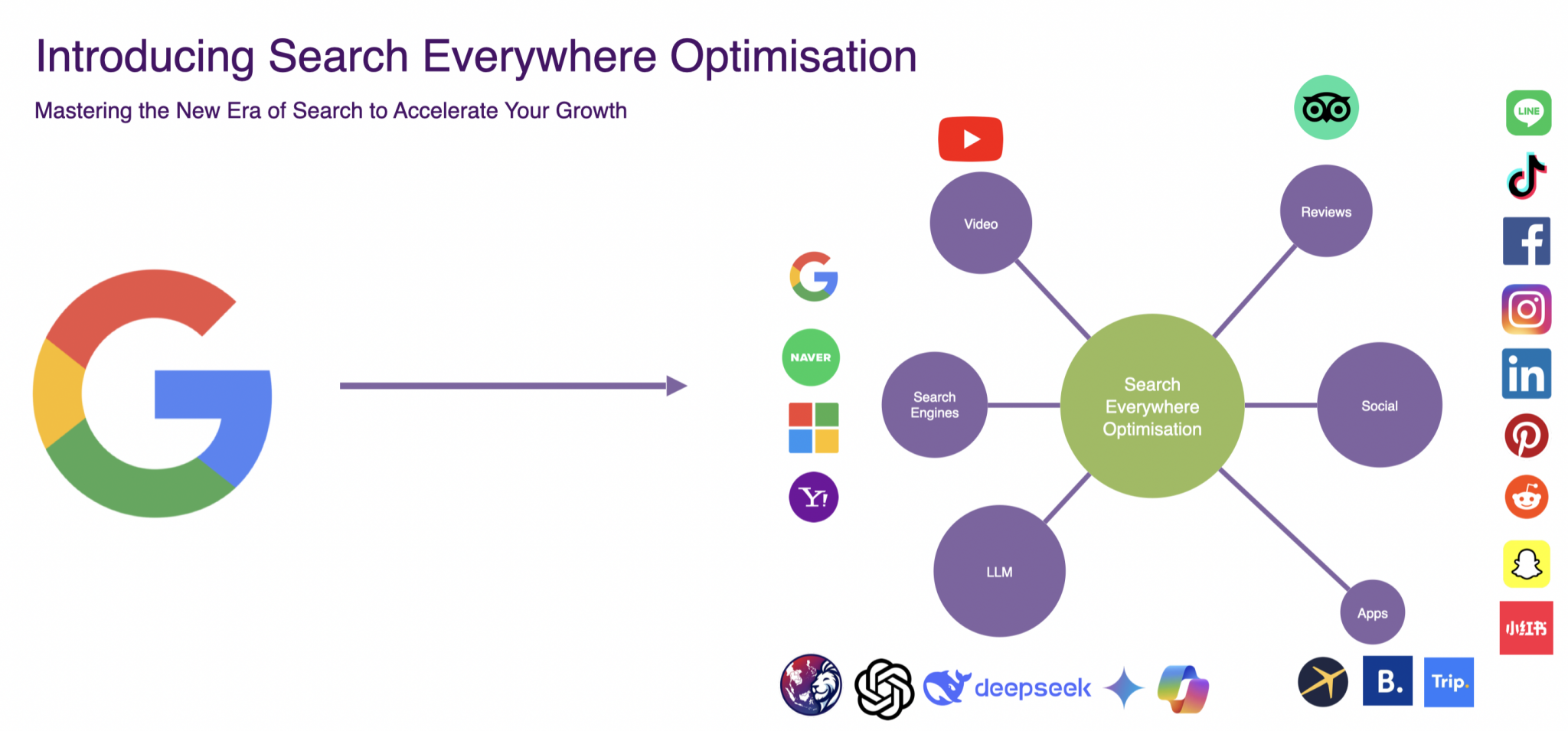
McLaughlin noted that over 50% of content in AI summaries is from user-generated sources, and 15% comes from editorial sites like Gourmet Traveller or Broadsheet. This brings traditional PR and media strategies back to the forefront of digital marketing. “What’s also a really interesting opportunity is that the AI landscape doesn’t yet know what’s paid and what’s earned,” she explained, suggesting that paid content partnerships on high-authority sites can be just as effective as organic PR coverage.
ZERO-CLICK WORLD AND GENERATIVE ENGINE OPTIMIZATION (GEO)
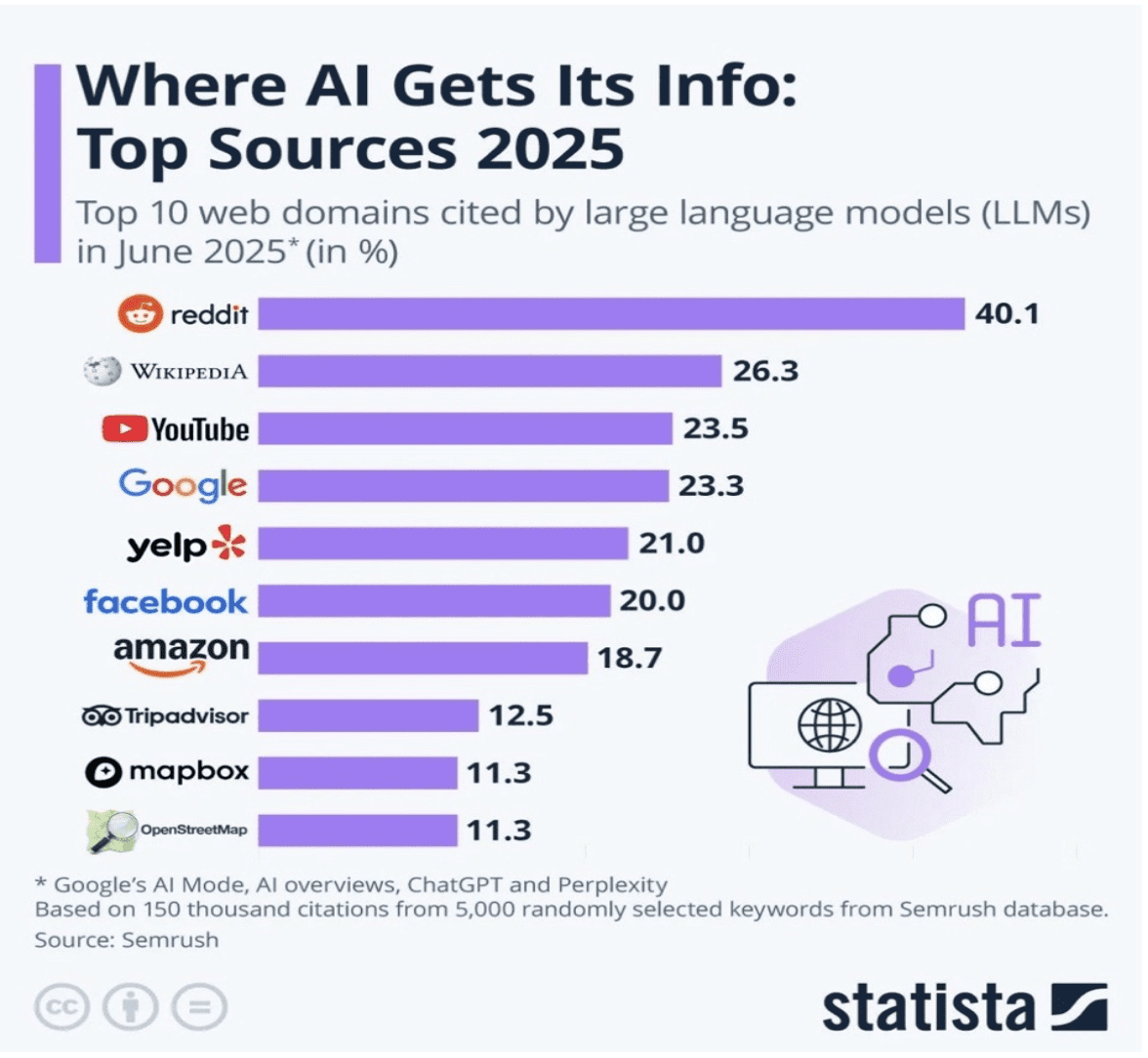
Brent Harris, VP of Sales at Cendyn, described the “zero-click world,” where guests get answers without visiting a hotel’s site. Travel has already seen a 17% drop in traditional search traffic, but the clicks that do come from AI are 4.4 times more valuable because travellers are further along in their decision-making.
To compete, hotels must embrace Generative Engine Optimization (GEO):
- Structure content for long, natural queries (e.g. “Find me the best luxury hotel in Sydney for a couples weekend with a spa and rooftop bar”).
- Build depth with FAQs, guest testimonials, destination guides, and in-depth blogs.
- Use structured data so AI can parse and repurpose information easily.
Chatbot data is another untapped asset. Since over 90% of guest questions are repeats, hotels can mine chatbot logs to shape AI-friendly content, ensuring those answers surface when guests search via LLMs.
MARRIOTT’S CASE STUDY: FIXING CANNIBALIZATION WITH GENAI
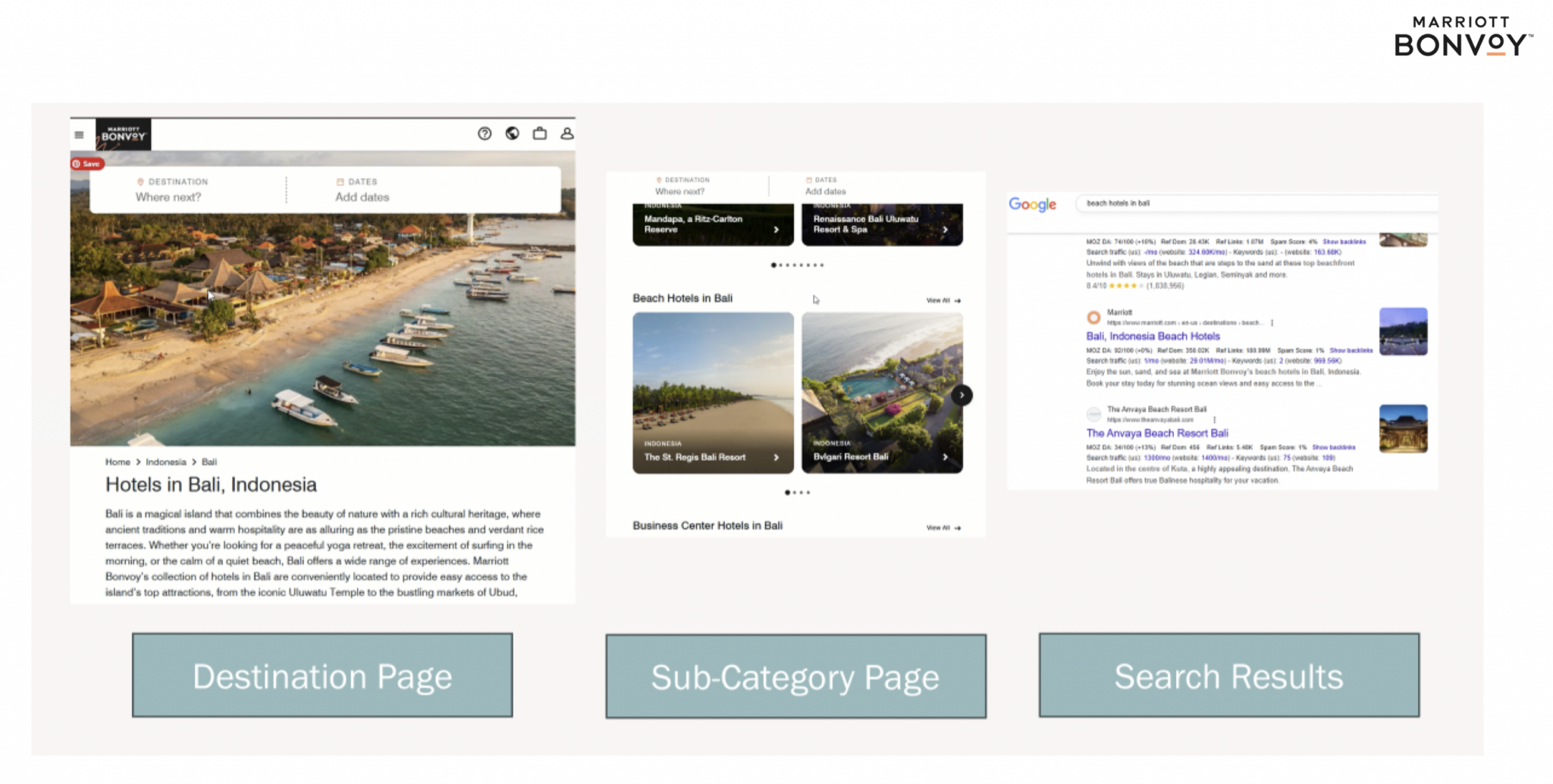
Catherine McLaughlin, Director of Field Marketing at Marriott International, shared how Marriott is rethinking search visibility across its 9,600 hotels.
The challenge: individual properties were competing against each other—and Marriott.com—for the same generic terms like “hotels in Sydney.”
The solution:
- Marriott deployed GenAI to build localized, highly specific destination content (e.g. “best beach resorts for families in Bali” vs. “Bali hotels”).
- Pages now include travel tips and thematic subcategories such as romantic getaways, rooftop pool hotels, or food-and-wine escapes.
- This framework ensures alignment with the Marriott Bonvoy brand while preventing internal cannibalization.
The results: in U.S. pilots, the approach delivered a 6.6-point lift in keyword performance, with destination landing pages ranking higher for long-tail, human-style queries.
McLaughlin also stressed the renewed importance of earned and paid media partnerships. AI summaries often pull from PR-driven coverage on credible sites (e.g. Gourmet Traveller, Timeout), meaning that investments in PR and content now have direct visibility benefits in AI search.
TRAVEL + LEISURE’S INTEGRATION STRATEGY
Tracy McArthur of Travel + Leisure Co. showcased how the company is embedding AI into multiple touchpoints.
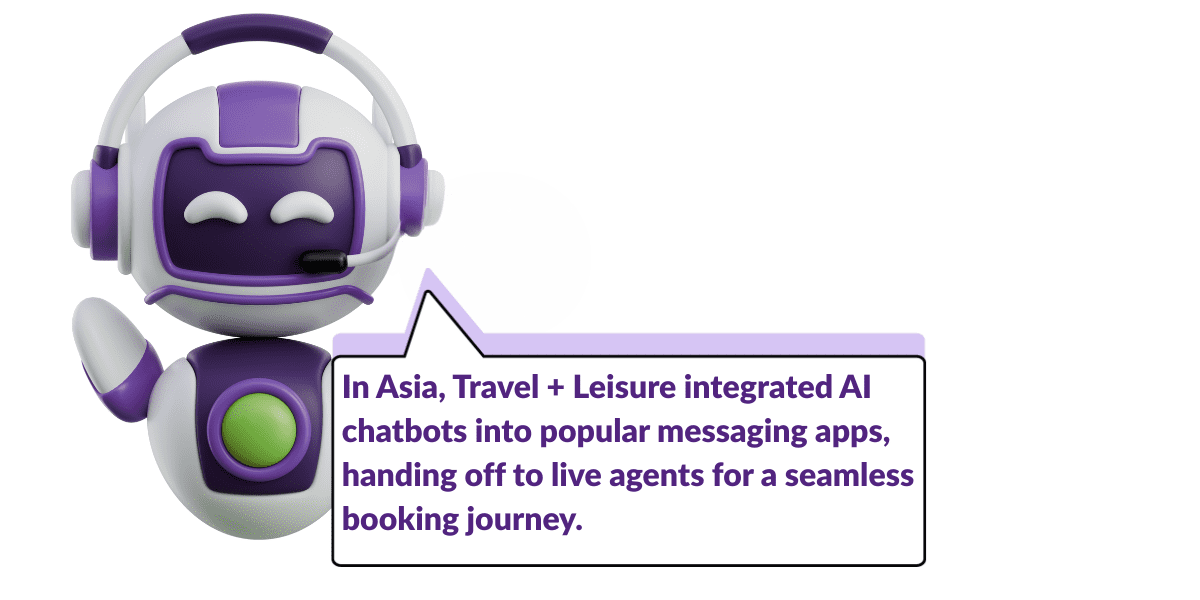
Key tactics included:
- Conversational content creation: FAQs, storytelling, and multilingual content written the way travellers actually ask questions.
- Chatbots in Asia’s dominant chat apps: starting conversations with AI before seamlessly handing off to human agents, boosting both engagement and conversion.
- Hyper-personalization: using booking and browsing behaviour to tailor one-to-one offers, lifting conversion by 0.5–1.5% over six months.
- AI-powered localization: scaling “always-on” web content across markets more quickly and cost-effectively with AI-generated translations and copy.
Their takeaway: AI is not a disruptor to fear but a partner to integrate—one that delivers higher visibility, better engagement, and stronger brand recall.
TIPS FOR SMALLER HOTELS ON LIMITED BUDGETS
Not every hotel has Marriott’s scale or Travel + Leisure’s resources. The panel offered practical starting points for independents and smaller groups:
- Define your uniqueness: boutique design, eco-credentials, or even free late checkout—make sure it’s easy for AI to find.
- Audit your visibility: use tools (like Profound) to see how your property appears in AI results.
- Create conversational content: FAQs, blog posts, and reviews that mirror how guests actually talk.
- Amplify through PR: even small wins in media coverage or influencer content can feed into AI’s training data.
- Prepare for voice search: structure content to answer spoken-style questions from younger travellers.
As one panellist put it:
define, audit, optimize, amplify
LOOKING AHEAD
The consensus was simple: no one has all the answers, but waiting is not an option. AI is already shaping how travellers search, validate, and book hotels.
Whether through GEO, PR investment, content partnerships, or localised landing pages, hoteliers need to embed AI awareness into their strategies now. The winners will be those who adapt early, consistently, and creatively.
If you would like to learn more, here are a couple of great resources. IMWT has created an infographic of the AI Visibility Framework for Hotels. Cendyn has a great guide on GEO for Hotels.
